Digitalisation
Is artificial intelligence currently de-mystifying people?
Digitalization seems to be turning the world as we know it upside down. How can we shape change while defending values that are important to us? An interview with Ernst-Joachim Hossner and Christiane Tretter, head and future head of the Digitalization Commission at the University of Bern.
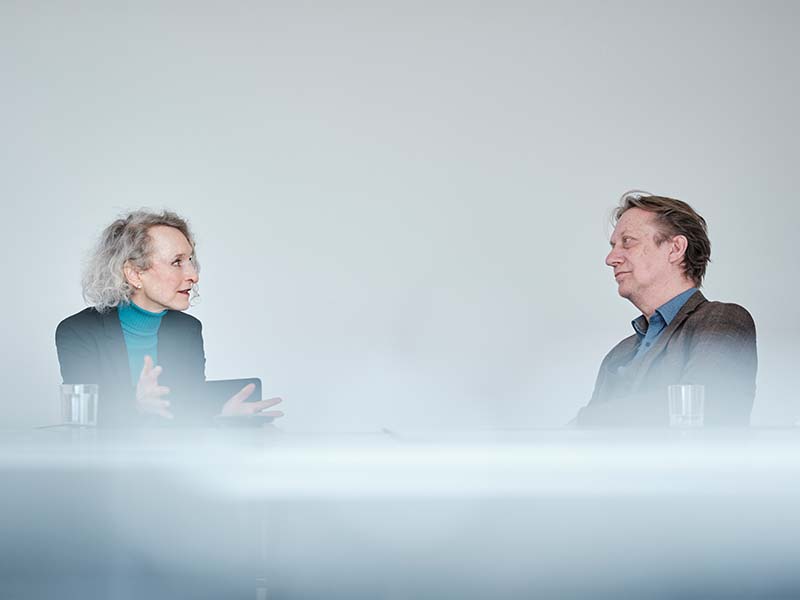
Christiane Tretter: We recently addressed this in a mathematics lecture. Assistants had ChatGPT solve the tasks of the first year lecture. The program came up with the correct solution for two out of five tasks – so it would have failed. For another task, the solution seemed plausible, but it was completely wrong due to a serious error. Nevertheless, there are many ways the University can use the program: For example, you could let ChatGPT solve the tasks and then check the solutions yourself. In my tests, the answers depended very much on how the questions were asked. You have to know what the program can do and what it can’t. It assigned a mathematical term to a violinist rather than a mathematician. But it’s good at programming, I’ve been told.
Ernst-Joachim Hossner: Currently, we’re only at the level of playing around – but I think it’s really impressive what these tools can do, and I look forward to further developments. The tools are there, and you have to find a way to deal with them. We are in the middle of implementing a digitalization strategy at the University, and at the same time we are directly affected.
How’s that?Hossner: It’s also something very personal: I love writing and editing texts, and as a university teacher I define myself by that. I’m worried about having to hand this over to superior AI software in the near future.
Tretter: I don’t know how well-founded such concerns are. There is the term “stochastic parrot”. It describes the fact that an algorithm, based on recognized patterns in previous data – in this case, texts – determines the most likely continuation. You know this from the Google search engine, which in the search field offers you the words that are most likely to come next. This is exactly how ChatGPT works: It identifies the most likely next word in each case and puts together entire texts. What is characteristic of human intelligence, on the other hand, is more the unexpected. Can ChatGPT also do the unexpected?
Parrot or not parrot – is that the question?Hossner: In recent centuries, science has increasingly de-mystified people – our uniqueness is becoming increasingly difficult to defend. I’m not sure we’re really more than stochastic parrots with a smaller database. Is the creative something fundamentally different? Or is the next great disenchantment happening?
Tretter: I’m more concerned about the division of society into people who understand what’s behind AI and recognize its pros and cons – and the others. For a better understanding, you need to have studied one of our rather unpopular STEM subjects, and here I fear that in future generations we will have too few such graduates.
«What is characteristic of human intelligence is more the unexpected. Can ChatGPT also do the unexpected?»
Christiane Tretter
So anyone who has studied natural sciences has an advantage here? How do we prevent the others from losing touch?Tretter: ZIn the future, everyone should learn at least some basic principles for dealing with it.
Hossner: Exactly. At universities, this interaction with digital worlds should become mandatory for all fields of study at the undergraduate level. How do I deal with Siri? Where are the dangers lurking behind it? We should be clear about what is important to us – not only in terms of how we deal with it, but also in terms of the framework.
What exactly do you mean by that?Hossner: Basically, it’s about consciously shaping our future. For example, do we want to have environments that are suitable for autonomous driving? Or do we want an environment that is tailored to us as human beings? AI and digitalization offer opportunities, but we help determine which opportunities they are by defining the framework conditions.
How would you set such a framework?Hossner: In my opinion, the big difference between humans and AI is empathy: Even though AI can pass the state examination in law, I still want to have someone in court who can empathize with me and see the peculiarities of the situation. This was also demonstrated by the opportunities offered by digitalization, which we had to get used to during the pandemic: We found it a good idea to be able to hold digital conferences. But it soon became clear that there was a lack of real contacts.
«AI and digitalization offer opportunities, but we help determine which opportunities they are by setting the framework conditions.»
Ernst-Joachim Hossner
Empathy is, in a sense, our territory. How confident are you that this will remain so?Hossner: It’s my hope. But as far as certain professions are concerned, particularly those that are highly algorithmic, I am not sure about that specific territory.
Tretter: This uncertainty also exists in non-algorithmized occupational fields such as call centers: The AI on the other end of the line can mimic empathy and deceive us. The risk is particularly acute for children. As a parent, you can have an AI write bedtime stories. When listening, adults would probably notice that something is missing compared to human-written stories – a certain authenticity or plausibility of the events. Children may not be able to make that distinction because they lack experience and intuition.
Could we do without these digital tools?Tretter: There are areas, for example in medicine, where they will be unavoidable. Take ophthalmology, for example: The number of older people is growing exponentially, and so is the number of eye diseases. The number of doctors, on the other hand, is only growing linearly. In future, therefore, it will not be possible to choose between man and machine when diagnosing – only between non-diagnosis and machine.
Is that basically bad?Tretter: In professional fields where a great deal of knowledge is important, such as medicine, there are plenty of opportunities for improvement. An AI can access much more knowledge than a doctor and therefore in many cases make more precise diagnoses. However, there is always a risk, as no one knows what data has been used to train AI.
What is the problem when no one knows the basic principles of AI training?Tretter: I find the term “artificial intelligence” fundamentally inappropriate. I am a supporter of the concept of expanded intelligence. After all, the latter does not hide the human effect – in other words, the fact that people chose the data used to train the machines. This selection never represents the whole truth – and accordingly, the result of the AI does not show a complete picture, but one that contains blind spots. However, it is difficult to understand which blind spots these are. This makes it difficult to keep control and see how these things work.
Continued education
Shaping change
The University of Bern offers various continuing education courses to strengthen personal skills in digital transformation.Tretter: Digital tools can be a threat to equal opportunities. I’m the first person in my family to go to high school and university. In my generation, there were many doctoral students whose parents were butchers, saleswomen or craftsmen. Of course, the school helped us in our social advancement back then, but there were only two TV channels, and there was virtually no way round watching the TV adaptation of Thomas Mann’s “The Buddenbrooks” for 13 evenings. Today, social media platforms are flooding people with addictive content, and an algorithm decides what “suits you”. Academic parents are more likely to know how to protect their children from these traps.
Hossner: Exactly. Whether you mainly use Wikipedia or TikTok, has a big impact on your chances in later life. It worries me when people just consume digital tools without a sense of sovereign living. If you only find out what suits your own opinion, information bubbles also emerge; this can have dramatic political consequences, as we see in many places. Essentially, the achievements of the Enlightenment are lost. This can therefore also be seen as an essential mission of universities: releasing graduates into society who act as multipliers through their self-determined, confident handling of digital change.
«Digital tools can be a threat to equal opportunities.»
Christiane Tretter
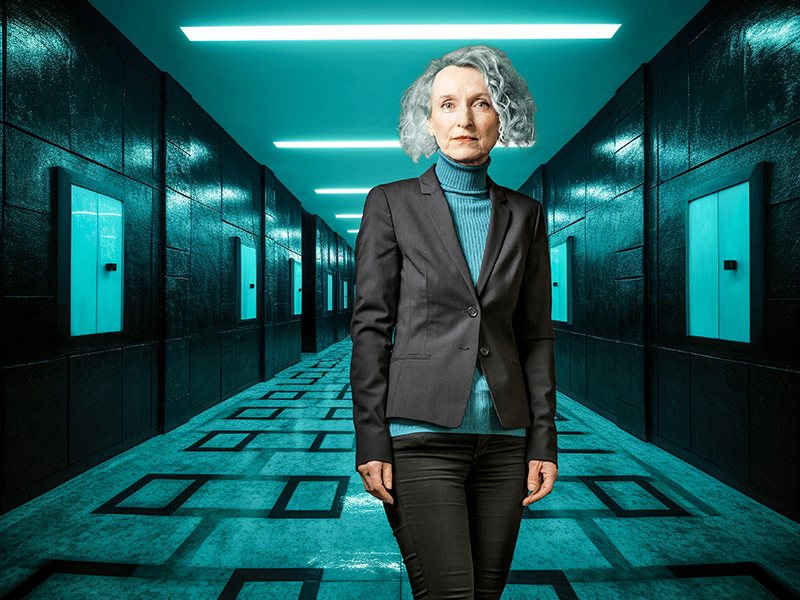
What is real here, what is fictitious? Photographer Dres Huchacher and graphic designer Eric Zankl created this image with the help of artificial intelligence. Read more here.
Hossner: Yes, absolutely, I’m a traditionalist. I’m not usually conservative, but this is a great concern of mine. In terms of profiling, it is an opportunity for a comprehensive university to introduce scents into society at this point.
Isn’t it too ambitious for a university to have an impact on society and influence such megatrends?Hossner: Let’s be a little discerning. I think that’s a mandate when it comes to dealing with students. Physicality is an important aspect in sport science, for example. One is in one’s own body and at home with that body in this world – but this physicality is becoming increasingly lost in the digital world.
Tretter: One aspect is hidden in this discussion: Without universities, there would be no AI. We produce the graduates around the world who can create digital worlds. We are the source of it all.
Hossner: I I’d like to disagree with that. My brother-in-law has been working in Silicon Valley for decades. Stanford may still be recognized as a university there, but otherwise they do their own business.
Tretter: But the employees of the big tech companies all come from universities.
Hossner: Still, I don’t get the impression that education is the central issue in Silicon Valley.
Promotion of early career researchers
Project ideas wanted
Perspective projects give young researchers at the University of Bern the opportunity to apply for financial support for digitisation-related project ideas.
Tretter: For us, perhaps, but not always for the companies we are talking about because business interests are more in the foreground.
Why this strategic focus on people?Hossner: This suits the University of Bern, our comprehensive university, especially compared to technical universities that are not comprehensive universities. The question concerns all academic fields, all faculties, and we can leverage that variety. For example: AI cannot be used as a diagnostic tool in medicine without raising fundamental questions. What if the AI makes a diagnosis that the doctor does not share? This is where important ethical, legal and humanistic issues come into play.
Tretter: I don’t see any contradiction between technical universities and other universities. The role of natural sciences goes far beyond the imparting of basic skills and also encompasses the responsible handling of digital transformation. The concept of “expanded” rather than “artificial” intelligence emphasizes precisely this point: that humans should design and use these tools for their own benefit. If society as a whole gets the feeling that these AI methods are only understood by a small group of people and that they are helplessly at the mercy of these AI methods, the next split is inevitable – just as in the pandemic. I believe that this is a danger, also politically, in all societies. That’s why we need to work on explaining what AI is and strengthening people’s sovereignty. People should have the impression that they can have a say here and that someone is there to provide the necessary information.
Hossner: This is one of the reasons why we have launched a series of public events in which we deal with the latest developments.
Events
International debate and Critical perspectives
Every November, a public lecture series on the central theme of "Human in Digital Transformation" is held with contributions from internationally renowned academics.
The event series "Critical Perspectives on Digitalisation" is intended as a format for reflection that reveals assumptions about digitalisation and examines the extent to which technology, science and society are interwoven.
Hossner: The Digitalization Commission comprises the lowest possible number of participants, taking into account all faculties, centers and levels. Although that still means 13 people, from the standpoint of self-definition, we have made it our mission not to primarily ensure that as much money as possible goes into our own faculty, but to focus on: What are the interesting questions about “people in digital transformation”? How do we get people together on platforms, such as thematic focus groups, so that they can exchange ideas? This is how we create agility.
Nevertheless, US and Chinese universities are likely to move faster.Hossner: I know hierarchical universities from my time in the UK. In comparison, we have a lot of leeway here, and we are responsible for driving this University forward – and that is precisely what is central to our global positioning: Maintaining this freedom is strategically important in a competitive environment. It needs this air to stay innovative. I didn’t work much in the UK, but I always proved that I did excellent work. This reduces the chances of being creative. In short: We make few compromises when it comes to agility, but we still get everyone involved and maintain our freedom.
Tretter: The process of dealing with digital transformation may have started a little late here. One difference is that in the United States, innovations are generally seen as something positive, “disruptive technologies” is the buzzword – this may tend to be different for us. It is also not only bad to look at something critically at first, it just must not turn into a blocking attitude.
The agile structure now makes it possible, for example, to initiate specific research projects and thus provide impetus.Hossner: Yes, we are currently identifying who is already active in this field, networking and ensuring that interfaculty research gets underway. The next stage will then be to structure the whole thing and achieve a visible external effect.
Tretter: It was interesting to see that commissioners tended to rate projects from their own faculty very critically. In the end, we were pretty much in agreement on what we wanted to propose to the University Executive Board in terms of funding, despite our very different backgrounds.
Like what?Tretter: EOne project that impressed me aims to improve the planning of shifts in healthcare. Algorithms should make it possible to give more weight to the desires and constraints of individuals. For example, if someone has a poor schedule one month, this is compensated in the next month. It is also about helping to combat the shortage of skilled workers by keeping health workers in their jobs.
Research
Profiling projects
In a first phase, the the University's Executive Board approved nine profiling projects on the topic of human in digital transformation. The 2023 call for proposals is now open.
«At universities, this interaction with digital worlds should become mandatory for all fields of study at the undergraduate level.»
Ernst-Joachim Hossner

What is real here, what is fictitious? Photographer Dres Huchacher and graphic designer Eric Zankl created this image with the help of artificial intelligence. Read more here.
Hossner: For example: As lecturers, we are challenged by ChatGPT. To this end, the University is now launching its own research project, from which we want to specifically benefit. Instead of informal advice on what to do and not to do, we will explore the topic and get hard empirical results. In other words, we look at the topic of “People in Digital Transformation” with reference to ourselves and our students. The “Digital teaching” focus group developed the concept for this, while the University Executive Board approved the budget.
During the pandemic, teaching was completely switched over to digital within three days. How do you teach today?Hossner: The possibilities offered by digital learning platforms and podcasts have dramatically changed teaching. We now have completely concerted material for every lecture unit, and if a lecture isn’t available as a podcast two hours later, I get nasty e-mails from students. We still have a lecture structure at the moment, and I often ask myself: What am I actually doing here when half of the students don’t hear what I’m saying until a day before the exam?
Tretter: Nobody here asks for podcasts anymore. It takes an incredibly high level of self-discipline to learn with podcasts. Many people may have realized this in the meantime. The incentive to visit something that takes place live is greater without podcasts, that’s natural – otherwise you’d naturally rather postpone it until later. I also don’t give PowerPoint presentations, although that would be much easier for me than writing everything down live on the board, so I have to concentrate and prepare properly. Maybe the real thing is better.
Teaching
Digital competences
Digitalisation can make good teaching even better.
Several projects were also launched to strengthen digital skills in teaching.
Digital learning units are available for students that specifically teach skills for the (digital) future.
Tretter: Not “still”, this is neurologically required, I would say: Understanding mathematics is a very complex process for the brain that cannot be accelerated. Lecturers in Biomedical Imaging are now also coming to us for their courses because we still have wall boards.
Hossner: We have had good experiences at our institute with the abolition of basic lectures in the master’s program. In the bachelor’s degree program, there will in the future be input on Mondays that you can go to live, but that will also be backed up digitally with neatly prepared explanatory videos. The practical application of the Monday unit will then take place on Friday in the sports hall. In between, there is one task to keep the students focusing on the topic and to connect them with other students. It is therefore a question of developing a confident approach to the new possibilities.
In 2030, a female student will begin her bachelor’s degree program at the University of Bern. Do you feel sorry for them or envy them?Hossner: To put it in a nutshell: I envy the student in 2030 because we will have managed to overcome all the challenges as a university by then.
Tretter: Universities are one of the few institutions that have survived centuries and overcome numerous crises: They are adaptable, they are powerful, they rely on the creativity of young people. I believe that these are favorable conditions for a female student to be able to face up to the new challenges in 2030 with confidence.
Hossner: To answer in a slightly more serious way than before: I feel a little pity for the student because the knowledge base is becoming increasingly uncertain and is also becoming outdated at an ever greater speed. But there’s something positive about that too, because it might be totally interesting. It definitely keeps you on your toes. And the student in 2030 will hopefully find that, thanks to the good and sensible use of digital tools, there will be more time for personal conversation, reflection and exchange – which is what sets us apart as human beings.
Specialist office
Consultation and coordination
The first point of contact for strategic questions on the topic of digital transformation is the Digitalisation Office. It coordinates the development and implementation of the university-wide digitalisation strategy and is responsible for the necessary governance structures and guidelines.
Contact
Head: Dr. Sascha Tayefeh, sascha.tayefeh@unibe.ch
About the person
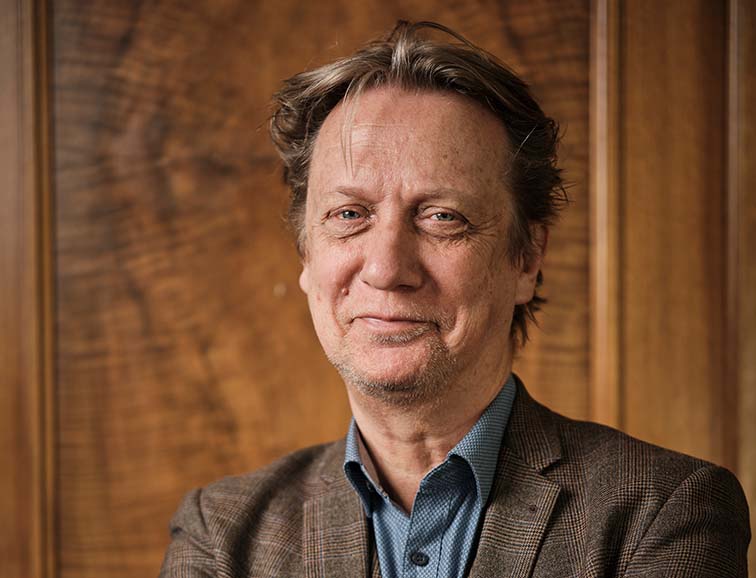
Ernst-Joachim Hossner
About the person
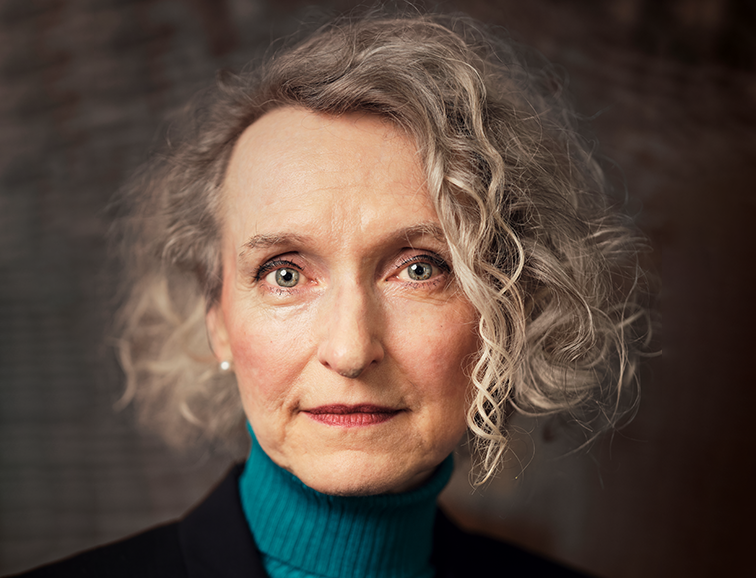
Christiane Tretter
is a professor at the Mathematical Institute and will become President of the Digitalization Commission of the University of Bern in 2024. Her research interests include differential operators, spectral theory and mathematical physics.
Contact:
Prof. Dr. Christiane Tretter, Mathematical Institute, University of Bern, christiane.tretter@unibe.ch
Strategy 2030
Digital transformation
For the University of Bern, “People in Digital Transformation” is the framework and guideline for dealing with digitalization in terms of content. It uses the opportunities offered by digitalization to continuously improve research, teaching, continuing education and services. It takes an active role in the digital transformation of education and participates in the dialog between different educational institutions. The University also wants to use the digital transformation to operate as efficiently, effectively and sustainably as possible.
New magazine uniFOKUS
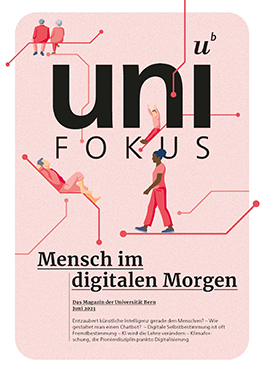
Subscribe free of charge now!
This article first appeared in uniFOKUS, the new University of Bern print magazine. Four times a year, uniFOKUS shows what academia and science are capable of. Thematically, each issue focuses on one specialist area from different points of view and thus aims to bring together as much expertise and as many research results from scientists and other academics at the University of Bern as possible.
The online magazine of the University of Bern
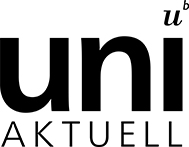
Subscribe to the uniAKTUELL newsletter
The University of Bern conducts cutting-edge research on topics that concern us as a society and shape our future. In uniAKTUELL we show selected examples and introduce you to the people behind them – gripping, multimedia and free of charge.